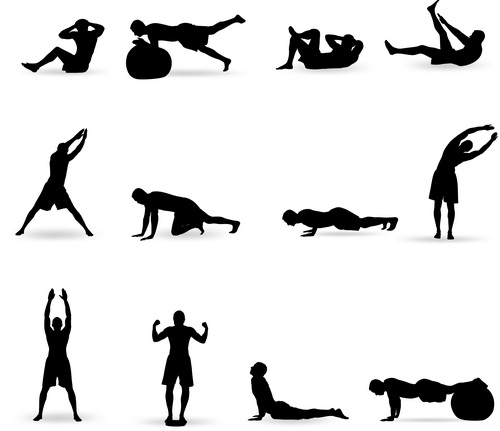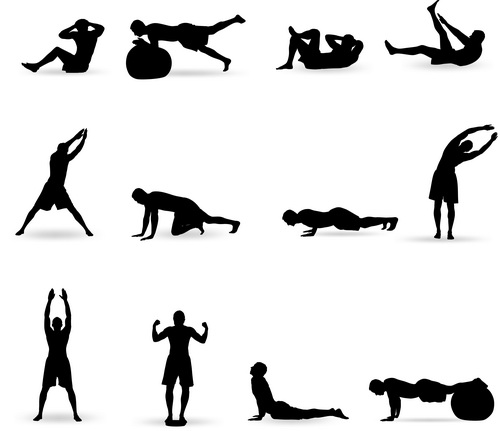ability
the physical or mental power or skill needed to do something
توانایی، توانمندی
He does not have the ability to manage this large company.
او توانايى اداره اين شركت بزرگ را ندارد.
the physical or mental power or skill needed to do something
توانایی، توانمندی
He does not have the ability to manage this large company.
او توانايى اداره اين شركت بزرگ را ندارد.
Oxford Essential Dictionary
ability
noun (plural abilities)
the power and knowledge to do something:
She has the ability to pass the exam, but she must work harder.
Longman Dictionary of Contemporary English
ability
a‧bil‧i‧ty S2 W1 /əˈbɪləti, əˈbɪlɪti/ BrE AmE noun (plural abilities)
[Word Family: noun: ability ≠ inability, disability; adjective: able ≠ unable, disabled; verb: enable ≠ disable; adverb: ably]
[Date: 1400-1500; Language: Old French; Origin: habilité, from Latin habilitas, from habilis; ⇨ able]
1. [countable] the state of being able to do something
ability to do something
the ability to walk
The health center serves all patients, regardless of their ability to pay.
2. [uncountable and countable] someone’s level of skill at doing something:
The test measures your mathematical ability.
mixed ability classes
of high/low etc ability
students of average ability
There are musicians of all abilities.
somebody's abilities as something
He showed his abilities as a leader.
3. to the best of your ability as well as you can:
He completed the job to the best of his ability.
• • •
COLLOCATIONS (for Meanings 1 & 2)
■ adjectives
▪ high/low/average ability a group of low ability pupils | Many of these students are of above average ability. | Children of high ability demand more absorbing tasks.
▪ great/considerable ability He was a young man of great ability. | These drawings required considerable ability on the part of the artist.
▪ remarkable/outstanding/exceptional ability a writer of remarkable ability | The company aims to select people of outstanding ability. | his exceptional ability as a swimmer
▪ mixed ability (=at different levels) a mixed ability class
▪ uncanny ability (=an unusual ability that is difficult to explain) He has an uncanny ability for spotting investment opportunities.
▪ natural ability (also innate ability formal) (=an ability that you are born with) He didn't have the natural ability of his brother. | Babies have an innate ability to do simple maths.
▪ physical/athletic ability He has considerable athletic ability.
▪ artistic/creative ability You do not need to have any artistic ability.
▪ musical ability Tim showed musical ability at an early age.
▪ acting ability Her acting abilities were obvious straightaway.
▪ mental ability The exercises are supposed to help you improve your mental ability.
▪ intellectual/academic ability No one doubts his intellectual abilities. | A degree is evidence of your academic ability in a particular subject area.
▪ verbal/linguistic ability (=language skills) The test is intended to measure the children's linguistic ability.
▪ mathematical ability These students have a higher level of mathematical ability.
▪ proven ability (=that you have proved through your achievements) Companies often value the proven ability and reliability of older employees.
■ verbs
▪ have the ability to do something (also possess the ability to do something formal) She has the ability to make people feel relaxed.
▪ show/demonstrate the ability to do something a chance for candidates to demonstrate their abilities
▪ lack the ability to do something As a young man, he lacked the ability to say no.
■ phrases
▪ a level of ability/ability level The children were of the same age and ability level.
▪ a range of ability/ability range There is a wide range of ability within the class. | Disruptive behaviour is more prominent in the lower ability range.
▪ a test of ability/an ability test Examinations are not always a good test of ability. | The class was given a verbal ability test.
▪ an ability group (=a group that students are taught in, based on their level of ability) Children are divided into different ability groups.
Oxford Advanced Learner's Dictionary
ability
abil·ity [ability abilities] [əˈbɪləti] [əˈbɪləti] noun (pl. abil·ities)
1. singular ~ to do sth the fact that sb/sth is able to do sth
• The system has the ability to run more than one program at the same time.
• Everyone has the right to good medical care regardless of their ability to pay.
• A gentle form of exercise will increase your ability to relax.
Opp: inability
2. countable, uncountable a level of skill or intelligence
• Almost everyone has some musical ability.
• He was a man of extraordinary abilities.
• students of mixed abilities
• A woman of her ability will easily find a job.
• I try to do my job to the best of my ability (= as well as I can).
Word Origin:
late Middle English: from Old French ablete, from Latin habilitas, from habilis ‘able’.
Thesaurus:
ability noun
1. sing., U
• the ability to learn
capability • • capacity • • power •
Opp: inability
the ability/capability/capacity/power to do sth
beyond/within your ability/capability/capacity/power
2. U, C
• a child's natural abilities
talent • • gift • • skill • • expertise • • aptitude • • competence • • proficiency • • art • • flair • |informal knack • • know-how • |formal prowess •
a natural ability/talent/gift/skill/aptitude/flair
(a) special ability/talent/gift/skill/expertise/aptitude
Example Bank:
• Fox's abilities were soon recognized.
• I seem to have lost my ability to attract clients.
• I taught a wide range of abilities.
• It is much more difficult to teach a mixed-ability class.
• It's important to discover the natural abilities of each child.
• She showed a high level of ability as a runner.
• She showed great ability in mathematics.
• The school does nothing for children of high ability.
• There was a high level of ability among the school leavers.
• We will keep you informed to the best of our ability.
• discovering the natural abilities of each child
• Are you used to teaching students of mixed abilities?
• I try to do the job to the best of my ability.
Cambridge Advanced Learner's Dictionary
Cambridge Advanced Learner's Dictionary - 4th Edition
ability / əˈbɪl.ɪ.ti / / -ə.t̬i / noun [ C or U ]
B1 the physical or mental power or skill needed to do something:
There's no doubting her ability.
[ + to infinitive ] She had the ability to explain things clearly and concisely.
She's a woman of considerable abilities.
I have children in my class of very mixed abilities (= different levels of skill or intelligence) .
a mixed-ability class
Word partners for ability
demonstrate / have / possess ability • lack ability • lose the ability to do sth • affect / limit sb's ability to do sth • innate / instinctive / natural ability • amazing / remarkable / uncanny ability • proven ability
© Cambridge University Press 2013
Collins COBUILD Advanced Learner’s English Dictionary
ability
[əbɪ̱lɪti]
♦♦
abilities
1) N-SING: N to-inf, oft with poss Your ability to do something is the fact that you can do it.
The public never had faith in his ability to handle the job...
He has the ability to bring out the best in others.
Syn:
capability
2) N-VAR: oft with poss Your ability is the quality or skill that you have which makes it possible for you to do something.
Her drama teacher spotted her ability...
I have confidence in the ability of the players...
They repeatedly questioned his leadership abilities...
Does the school cater for all abilities?
3) PHRASE If you do something to the best of your abilities or to the best of your ability, you do it as well as you can.
I take care of them to the best of my abilities...
They tackled them to the best of their ability.
Merriam-Webster's Advanced Learner's Dictionary
ability
abil·i·ty /əˈbɪləti/ noun, pl -ties : the power or skill to do something
[count]
• a young woman with many remarkable musical/artistic/athletic abilities
- often followed by to + verb
• a teacher with an ability to inspire his students
• Does he have the ability [=authority] to fire employees?
• a writer's ability [=capability, capacity] to interest readers
[noncount]
• a young woman of great musical/artistic/athletic ability
• She has shown some ability with foreign languages.
• He always works to the best of his ability. [=as well as he can]



